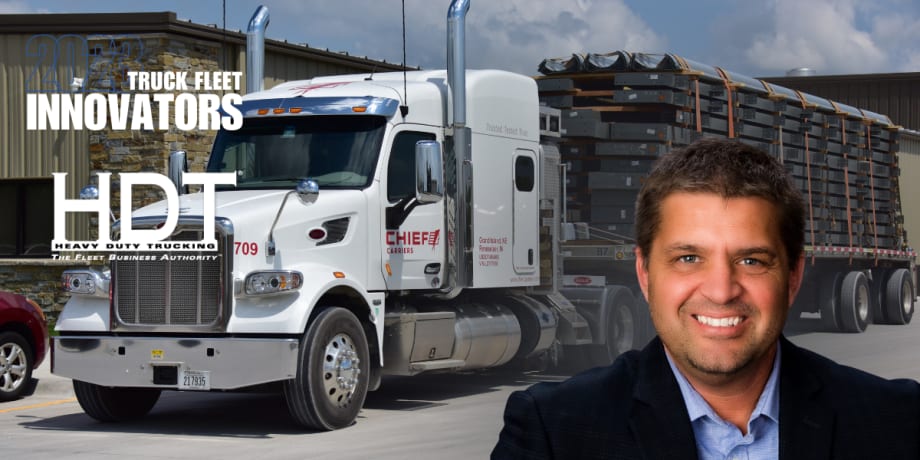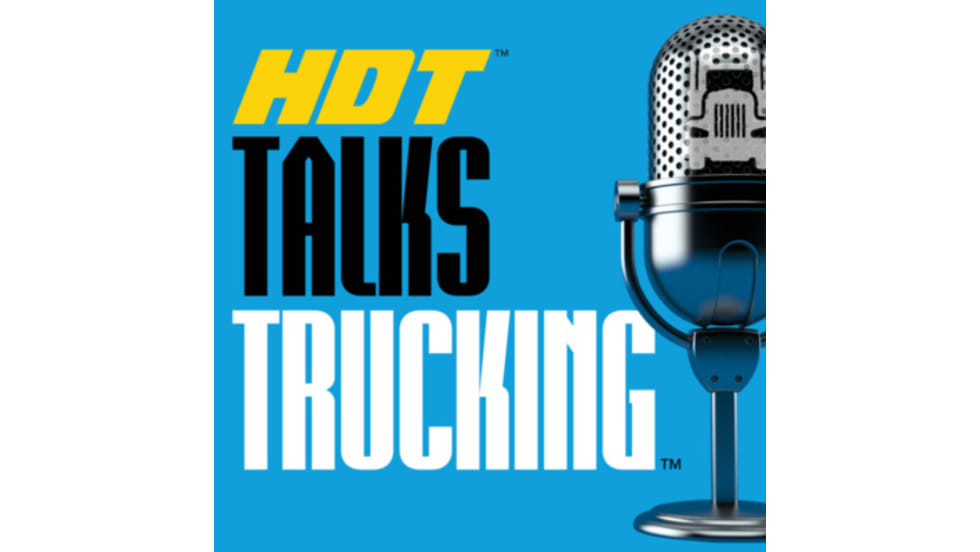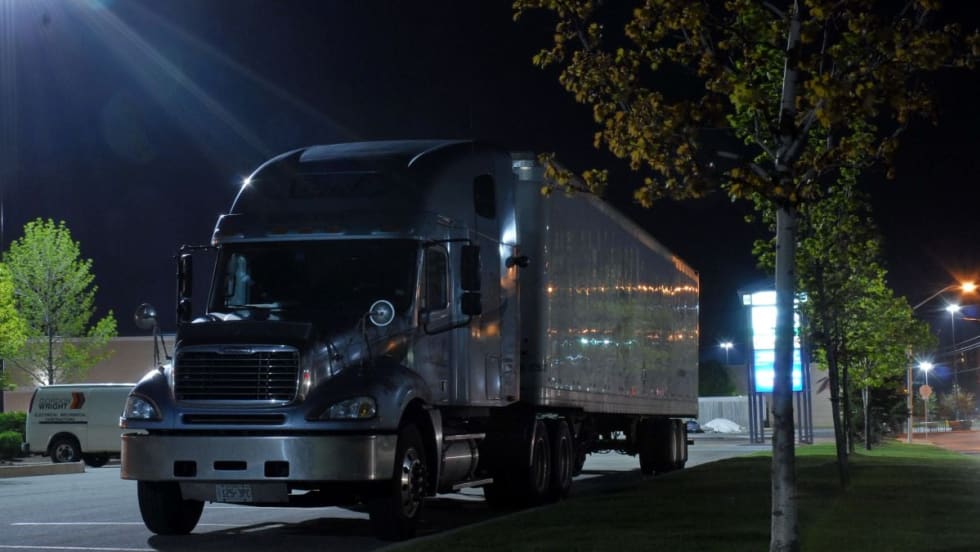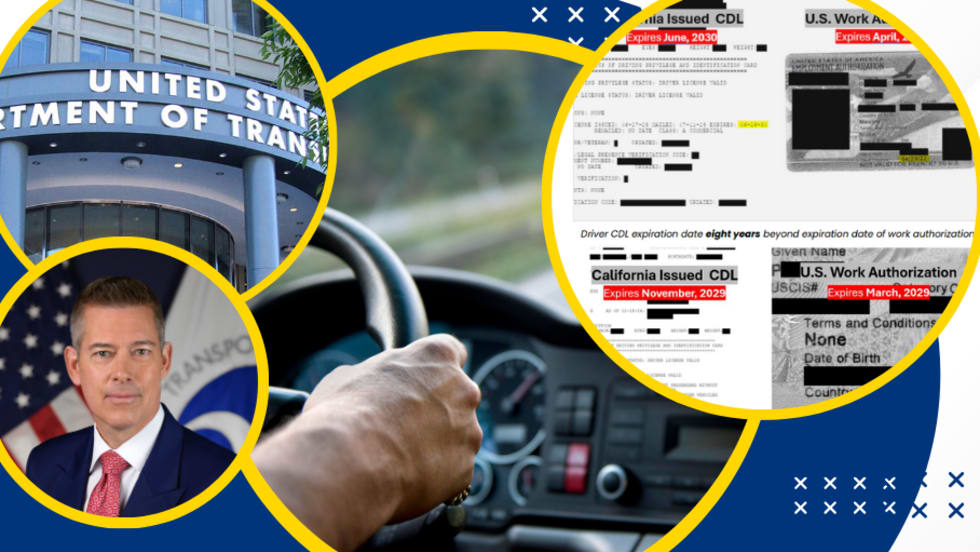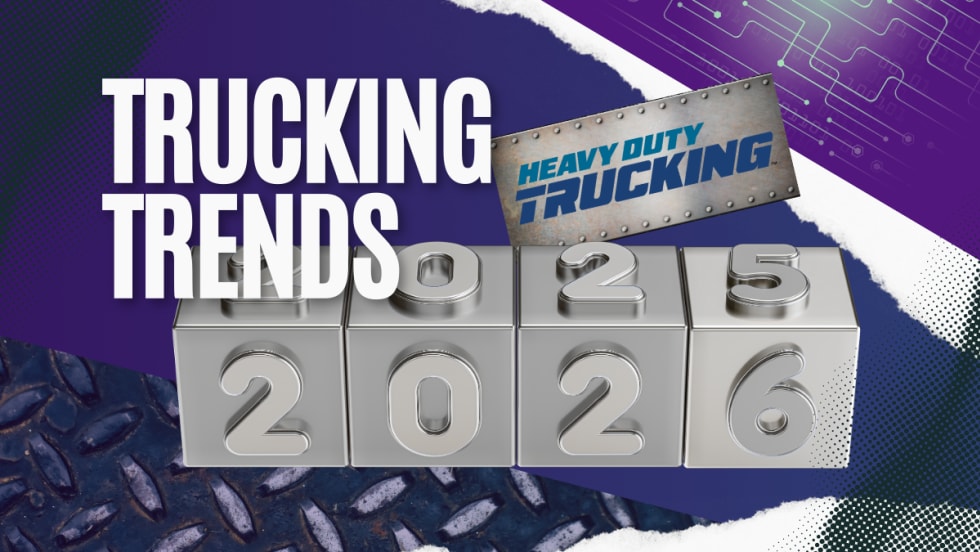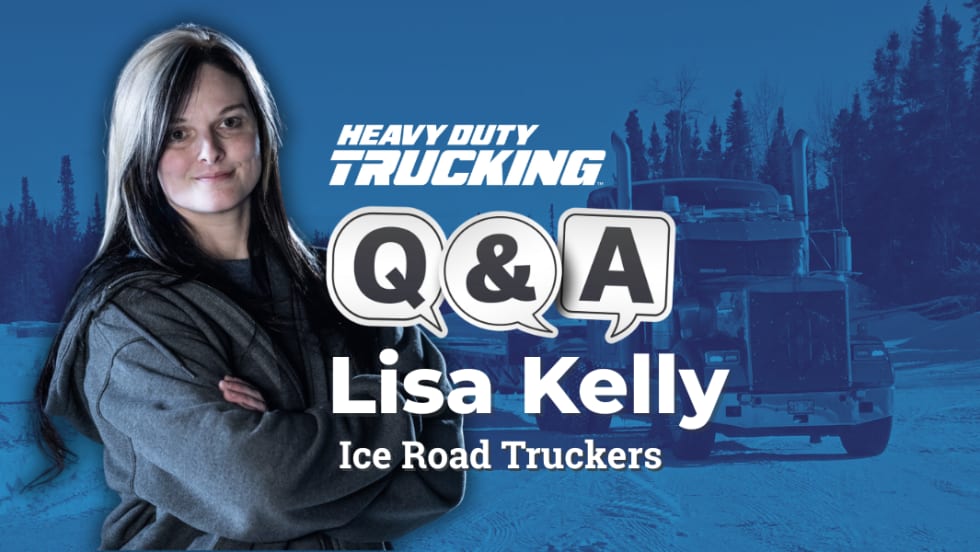How many top trucking executives would start a podcast called “Driven Too Far: The Truth About Trucking”? Andrew Winkler of Chief Carriers, that's who. He's an HDT Truck Fleet Innovator for 2023.
The first week Andrew Winkler was on his new job as general manager at Chief Carriers, he noticed something strange at the flatbed carrier’s brand-new terminal.
Drivers had their own entrance, with access to a dispatch window, a maintenance window, a driver’s lounge and a small training room. But all the other doors were closed.
“I’d go kick these doors open every morning and put the little wedge in the bottom to hold them open,” he says. “I come back an hour later, the doors are shut again. And I finally pulled the operations guy and said, ‘Hey, what’s going on with these doors?’ He said, ‘Well, we don't want drivers in here. They might bother us.’
“And I'm like, ‘Are you kidding me?’” Winkler says. “So they didn't even like drivers, and they're in the business.”
That had to change.
“We have a wide-open-door policy now,” he says. In fact, every day, a handful of drivers stop by his office just to chat.
Winkler started his trucking career in 1995 as a student driver at Nebraska-based Grand Island Express. He worked his way up over the next 23 years and was vice president of operations when he left in 2018 to become general manager of Chief Carriers (also in Grand Island.) Chief has about 75 trucks and about 225 flatbed trailers.
One of the first things Winkler did at Chief was to work on changing the culture around drivers. He had worked with the Truckload Carriers’ Association’s Best Fleets to Drive For program at Grand Island Express, and brought the lessons learned to his new position.
This year, Chief Carriers won top Best Fleets to Drive For honors in the small company category. That made Winkler the first person to win the overall award at two different companies.
Although he no longer has his CDL, Winkler says, “as soon as you tell new drivers that, ‘Hey, I was in your shoes 25-30 years ago,’ they seem to respect you a lot more.”
Doing More for Drivers
The closed doors weren’t the only thing Winkler noticed in those early days. In fact, he spent much of his first 90 days at Chief simply observing.
“I remember my first month here, I looked out my window and saw a driver had tucked his truck and trailer against the building trying to get himself out of the wind, trying to throw this tarp in the Nebraska wind. It’s like a parachute. I thought, ‘This thing’s going to rip him off the top of the trailer. I said, ‘We’ve got to get these guys out of the weather.’
So last year, when Chief added a 5,000-square-foot load-securement facility, it added two 100-foot bays to get drivers into a climate-controlled environment while securing their loads. “For them to see us imake a significant investment in a facility for them, I know they appreciate it.”
The bays have cameras so if something does go wrong there’s a record. But a near-miss accident prompted another idea for cameras.
“A driver was chaining down a load, and it was a big load of steel beams on the trailer. So they throw their chains over, throw their chains over, and they snug them down, snug them down. And he snugged one down and something came off that top beam. It was like there was a loose piece of material up there left by mistake. It hit him in the back of the head and it just grazed him. Thankfully, he ended up with just a few stitches.”
It could have been a lot worse. So Winkler added three cameras in the ceiling, which display a birds-eye view of the top of the load on big 65-inch monitors.
“So he can see if there's any loose material up there, he can see if anything shifted. And then as he's throwing his chains and straps over the top, he can make sure he has them lined up where he wants without having to climb up on the trailer and inspect it.”
Safety as a Core Value
The loading bays were a result not only of Chief’s new focus on drivers, but also part of its safety efforts. Winkler doesn’t like to call safety a priority; it’s a core value.
“Why we think safety is a core value and not a priority is because priorities change day to day; a core value never changes.”
Two years ago, the company went through a program put on by then-CEO of Jetco Delivery, Brian Fielkow, called Making Safety Happen. (Fielkow, coincidentally, was a 2022 Truck Fleet Innovator.)
“What we had noticed was over time,” Winkler says, “people become complacent. It might be little things like maybe a driver is not wearing his hardhat when he should, or gloves or steel toed boots or some things like that.”
After going through Fielkow’s program, Chief developed a list of 10-15 safety items and ask everyone (not just drivers) to commit to them.
From there, they developed the Red Hat program. “Every driver is given a white hard hat and orientation, but when they're caught doing something right on the yard, they're issued a red hard hat,” Winkler explains. Instead of punishing drivers for not following the rules, it rewards them for doing things right.
Last year, the company took it a step further and attached monetary rewards, with the ability to earn extra cents per mile for accomplishing certain things in the safety program.
Chief also put in dash cams a couple of years ago. The Samsara system gives drivers a safety score on their phones. “And then they get really competitive over it,” he says. “So it created a fun safety culture.”
Chief also created a new safety position. A full-time local driver who was also doing training and orientation was brought off the road to be a safety specialist.
“So he's out there constantly coaching, helping training drivers with the tie-downs. It's worked so well that we’ve duplicated that effort at our other terminal in Rensselaer, Indiana.”
The safety specialists also go out onto the lot in the morning to check the pre-loaded trailers. “They're looking for problems ahead of time, so they can maybe correct those before drivers are assigned and dispatched on the load. So that's been a time saver and an extra set of eyes on safety.”
Turning Ideas into Action
Sometimes, Winkler says, he actually has too many ideas.
“I’m kind of ... call it a flaming visionary,” he says. “I've got ideas constantly rolling around in my head, and I'll read articles, and something will pop in there, we need to do that. And what I had to learn was that I was coming into my management meetings and kind of kind of dropping these ideas on my leadership team, and then I'm out the door again. And they're just standing there going, ‘Holy crap, how are we supposed to get all this stuff done?’”
“They were getting frazzled,” he says. “They were too busy working IN the business instead of ON the business.”
So Winkler turned to the Entrepreneurial Operating System for businesses, or EOS, a set of concepts and tools that together make up a complete business management system to help companies reach their business goals.
“Think of it as a business operating system, like your computer has an operating system,” he says. “It kind of grounded us and helped us. It slowed me down a little bit and gave me the ability to work with the rest of the leadership team. We now live in this kind of 90-day world, we do a lot of planning, we set 90-day goals, it holds everybody accountable, gives you the foundation you need.”
'Driven Too Far' Podcast
How many top trucking executives would start a podcast called “Driven Too Far: The Truth About Trucking”?
Podcasts were something that was becoming more popular among the Best Fleets to Drive For carriers. But Winkler was skeptical. Would anyone really be interested in what he had to say? With only 75 drivers, was it really worth the investment in a studio and having it produced professionally? He was adamant that it needed to be aimed at more than Chief drivers.
“The podcast is meant to help drivers, and we talk about issues in the trucking industry,” he says. “And I know there's a lack of trust between drivers and, call it the office staff or the executive teams, where they think we're just all about the dollar signs here in the office and that's how we make decisions.
“So, I wanted the podcast to be able to kind of pull back the curtain, so to speak, and show them why we make the decisions we do. And how can I help them make better decisions as professional drivers that will push them further in their career?”
In fact, for the first couple of months, it wasn’t even branded as a Chief Carriers podcast. And even now, it’s pretty subtle branding.
The podcast isn’t about Chief, but about reaching out to help drivers. He’s done episodes on topics such as trucking and AI, what to do if you’re in an accident, becoming an owner-operator, social media, automated transmissions, working with brokers, the role of safety in driver turnover, and the questions drivers should ask recruiters.
And he draws on his own experiences.
“I remember the early days of my career and the stupid stuff I was doing as a driver.”
As an example, he says, “you're home, and the hardest thing for drivers to do is get out of the house on time. And you stay late, you stay late, you stay late. You don't want to leave the family, the kids, and then you decide to leave 2:00, 3:00 in the morning. You haven't had a full night’s sleep, you’re leaving at the crack of dawn, trying to drive straight through to make delivery appointments. So yeah, I do share those dumb experiences that I had as a driver.”
It seems to be working. The podcast has had more than 10,000 downloads since it started in November and averages more than 2,000 listeners per episode.
“And that blew me away.”




